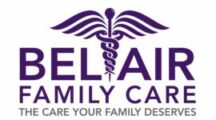Proudly Part of Privia Health

High Cholesterol Treatment: Eating for Your Heart
Are you looking for information on high cholesterol treatment? Cholesterol is the waxy substance that your body uses to protect nerves, make cell tissues and produce certain specific hormones. Your liver produces all the cholesterol that your body could ever need. Additionally, your body gets cholesterol directly from the food you eat. Too much cholesterol can negatively impact your health.
WHAT IS HIGH CHOLESTEROL?
High cholesterol, or hyperlipidemia, means your blood has too many lipids (or fats), such as cholesterol and triglycerides. One type of hyperlipidemia, known as hypercholesterolemia, is a result of too much LDL cholesterol in your blood, a condition that increases fatty deposits in arteries and the risk of blockages.
Having high cholesterol levels in your blood increases your risk of heart disease and stroke. There are no symptoms of high cholesterol. You will only learn you have it after your doctor has ordered a blood test known as a lipid panel.
TREATING HIGH CHOLESTEROL
Lifestyle changes such as exercising and eating healthy are the first line of defense against high cholesterol. What you eat directly impacts your cholesterol level. Here are some dietary steps you can take:
CHOOSE HEALTHIER FATS
Saturated fats and trans fats raise your LDL cholesterol and total cholesterol. Common sources of saturated fat are processed meats, red meat and full-fat dairy products. Monounsaturated fat found in canola and olive oils is a better option. Other sources of healthy fat include avocados, almonds, pecans and walnuts.
AVOID TRANS FATS
Trans fats, which are often found in margarine, baked cookies, crackers and snack cakes, are particularly bad for your cholesterol level. Trans fats increase your total bad cholesterol and they also lower your good cholesterol.
LIMIT YOUR DIETARY CHOLESTEROL
Concentrated sources of cholesterol can be found in organ meats, egg yolks and whole milk products. Instead, use lean cuts of meat and skim milk and limit the intake of eggs to not more than seven weekly.
SELECT WHOLE GRAINS
Nutrients found in whole grains aid heart health. Choose whole grains and whole wheat when it comes to bread, pasta, flour and brown rice. Oatmeal and oat bran are other good choices.
STOCK UP ON FRUITS AND VEGETABLES
Dietary fiber can help lower cholesterol, and fruits and vegetables are chock full of it. Snack on seasonal fruits. Experiment with vegetable-based casseroles, soups and stir-fries.
EAT HEART-HEALTHY FISH
Some fish, such as tuna, halibut and cod, have less total fat, saturated fat and cholesterol than meat and poultry. Mackerel, salmon and herring are rich in omega-3 fatty acids, which help promote heart health.
DRINK ALCOHOL IN MODERATION
Moderate use of alcohol can increase your levels of HDL cholesterol. If you drink, do so in moderation, which means not more than one to two drinks per day.
THE BOTTOM LINE
It is essential to have your cholesterol levels checked, especially if you have a family history of heart disease. Working to decrease your LDL bad cholesterol through proper diet, exercise, and medication can make a positive impact on your overall health.
